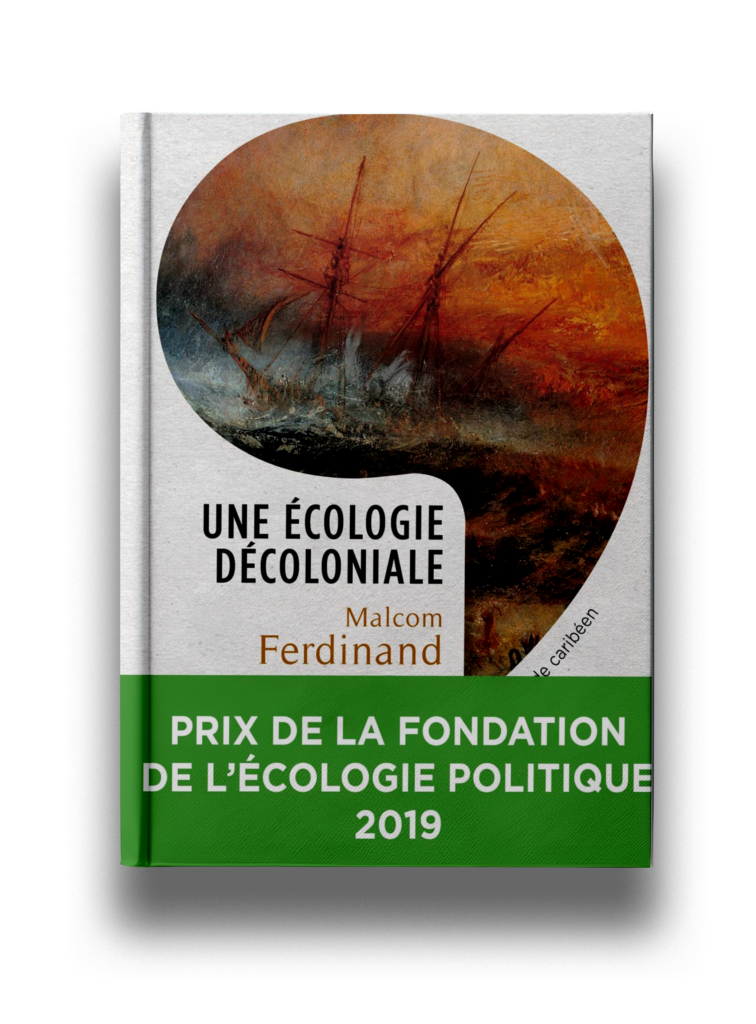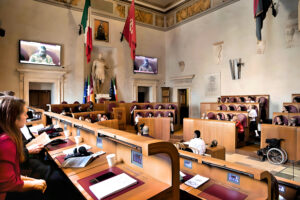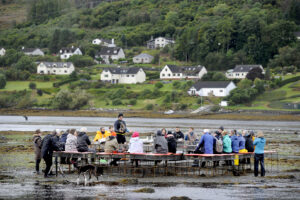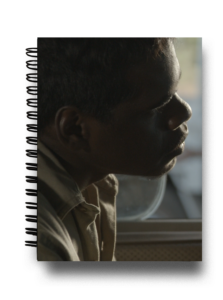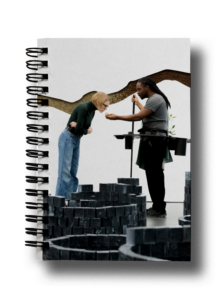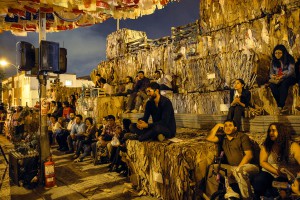Year
2019
Publisher
Seuil
Author
Malcolm Ferdinand
Annotation
It is becoming increasingly apparent that ‘one cannot be anti-racist without being an ecologist today, and vice versa.’ Such is one of the underlying premises of Malcom Ferdinand’s 2019
book (appearing in English translation with Polity Press in the of autumn 2020), which forcefully calls for the politicisation and decolonisation of the practice and study of ecology and the recognition that climate crisis is bound up with histories and persistent traces of colonisation, and the acknowledgement that environmental justice is intimately linked to decolonial and anti-racist struggles across the world, both historically and nowadays.
Thinking ‘public space’ here in terms of spaces of environmental activism or institutionalised positions of environmental stewardship and advocacy, many have lamented the whiteness of the green movement and the fact that racialised persons are still conceived as what sociologist Nirmal Puwar names ‘space invaders’: deviants from the ‘somatic norm’, bodies that ‘are marked out as trespassers, who are, in accordance with how both spaces and bodies are imagined (politically, historically and conceptually), circumscribed as being “out of place”.’ This predicament is one of Ferdinand’s main loci of engagement. But his argument is that tackling ‘diversity’ is not sufficient; rather, the book addresses what it is about the object in question that causes such exclusions in the first place, in order to then offer some proposals for potential bridging of the gaps in the narratives of ecology and climate warming. To do this, Ferdinand performs a major shift in perspective, re-situating the starting point of how climate change and ecology are to be understood: rather than beginning with the ‘founding fathers’ of ecology such as Rousseau or Thoreau, Ferdinand asks that our public libraries and bibliographies be arranged otherwise, proposing a different genealogy that begins with the slave ship — the imaginary figure of thinking ecology from the Caribbean world. This allows for a re-telling of the story that includes survival (through the experience of ‘the shipwrecked condition’) and resistance — as epitomised in the figure of the maroon, who resisted both the plantation system that has given rise to our contemporary climate crisis, and slavery. If one was to imagine today’s world as a ship, who or what would be allowed to board? And who is welcomed into the boardrooms in which environmental policy is written? Both scenarios are interrelated and entail addressing what Ferdinand calls ‘the double fracture of modernity’, which signals, telegraphically, the lack of dialogue since the 1960s until now between the ecological movements that tackled ‘the environmental fracture’ (placing man above nature) on the one hand, and on the other the independence movements that tackled ‘the colonial fracture’ (placing the coloniser above colonised).
This double fracture has been addressed by key figures from the field of postcolonial environmental humanities since the early 2000s, and indeed Ferdinand states an accord with postcolonial ecocriticism, referencing several key works (n. 55). What distinguishes Ferdinand’s approach, however, is his insistence on tracing an alternative genealogy and bibliography (which includes a notable presence of literary figures) precisely in order to intervene in the urgent issues of representation raised earlier — in other words, to come back to the notion of publicare as ‘making public’, to intervene explicitly in contemporary public debate. This interventionist ethos is signalled by the specific manner in which the term ‘décolonial’ (as opposed to ‘postcolonial’) is to be understood: while Ferdinand takes inspiration from the decolonial thinking initiated by Latin American thinkers and militants such as Anibal Quijano, Arturo Escobar, Catherine Walsh and Walter Mignolo (see Bajorek), the ‘decolonial ecology’ proposed herein moves beyond this geographical remit, opening itself up and making necessary links with other movements including Africana philosophy, strands of feminist thinking (particularly Afro-feminist and intersectional) that demonstrates the imbrications between gender and racial oppression, as well as critical race theory. In the French context from which Ferdinand writes (he is currently a researcher at the French National Centre for Scientific Research, CNRS), terminology is important: whereas the emergence of ‘postcolonial studies’ can be traced to the academic sphere, the understanding of the term ‘décolonial’ in French public space implies a break from the ‘études postcoloniales’ to be found in the halls of French academia, and the term circulates more in civil society, associated in particular with militant anti-racist groups, who were the first to make use of the term. As such, the ‘décoloniale’ of the book’s title signals at once a rootedness in decolonial intellectual thinking and an activist orientation, as testified to by the plethora of activists’ proper names that populate the book.
Importantly, rather than simply critiquing the colonial world order and its accompanying epistemes and blinkered historiography, Ferdinand offers several alternatives, among them:
‘interspecies alliances against the Plantationocene’, relational (more-than-human) ontologies, a ‘cosmopolitics of relation’, and the necessity to think climate justice together with decolonial conceptions of reparations and restitutions (in this latter we hear resonances with Azoulay, albeit with Ferdinand pushing this further insofar as the treatment of both reparations and ‘worldliness’ moves necessarily beyond the human). All of this contributes to a call for ‘world-making’, for the making of a common world between humans and nonhumans. (In Ferdinand’s use, the term ‘world’, unlike ‘nature’, ‘environment’ or ‘planet’, encompasses both human relations and the entirety of planet Earth.)
While not explicitly addressing the role of the arts within public space, Ferdinand’s book is formative for a number of reasons. Among them, firstly, there is an emphasis throughout on the role of the imagination (see also Azoulay and Bajorek), and of the cultural currency and material effects of certain hegemonic imaginaries. Secondly, much can be gleaned here that is useful in the context of current curatorial interest in practices (aesthetic, literary and scientific) that tackle relations between colonialism and ecology, and that engage in ‘more-than-human’ forms of representation, sociality and worldmaking (see Garcia-Anton; Sonjasdotter; Sakiya) — practices of what Ferdinand names ‘composing with plurality’ that recognise links between the exploitation of colonised and enslaved peoples as well as the earth, spaces of writing and narrating based on collective experience into which multiple forms of life are invited.
Shela Sheikh
To the environmental urgency of limiting global warming and putting a stop to the destruction of Earth’s ecosystems, I add some equal urgencies: of a global redistribution of wealth and social justice; of the decolonial task of recognizing a worthy place in the world for the peoples of First Nations, the formerly colonized and racialized people; and of equal social and political consideration of women, especially racialized women from former European colonies. Yes, ecology is above all an issue of justice. The ecological crisis is a crisis of justice. Dealing with the urgency of this ecological storm requires returning to the origins of this crisis as well as to the origins of environmental justice and climate justice. […] Environmentalism has separated environmental justice from its initial anti-racist and feminist impulses. The environmentalist partisans of the Anthropocene fearfully brandish the prospect of a collapse for which they demand justice, without acknowledging past collapses, slavery and genocides, on the pretext that it is now a global issue. This apolitical thinking of ecology by those […] who gleefully breathe fresh air is no more than a maintaining of the hell of the hold [of the slave ship] and the injustices of the Plantationocene. From this arises the lie claiming that the racialized, the colonized, the dominated are not concerned with ecology, and the absurdity according to which Western countries still think of themselves as missionaries responsible for spreading the good word to the peoples of colour and laymen.
